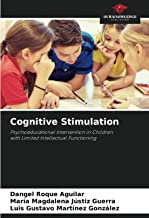Borderline Intellectual Functioning
The term borderline intellectual functioning describes a group of people who function on the border between normal intellectual functioning and intellectual disability, between 1 and 2 standard deviations below the mean on the normal curve of the distribution of intelligence, roughly an IQ between 70 and 85.
Cluster Number:
Wiki Number: W025
Diagnosis: (Borderline) Intellectual Disability
US Patients: US2-3%
World Patients:
Sex Ratio:
Age Onset: Age5
Brain Area:
Symptoms: (IQ below 70.) includes Down Syndrome; may learn like others up to age 12
Progression:
Causes: Trisomy 21-3 sets of the 21st chromosome 21 produces intellectual difficulties
Medications: None
Therapies: Behavioral training, group-home living and sheltered workshops.
Youtube Video: How Much Do You About Intellectual Disabilities?
Amazon or Library Book: Cognitive Stimulation
Click the book to link or order from Amazon.

